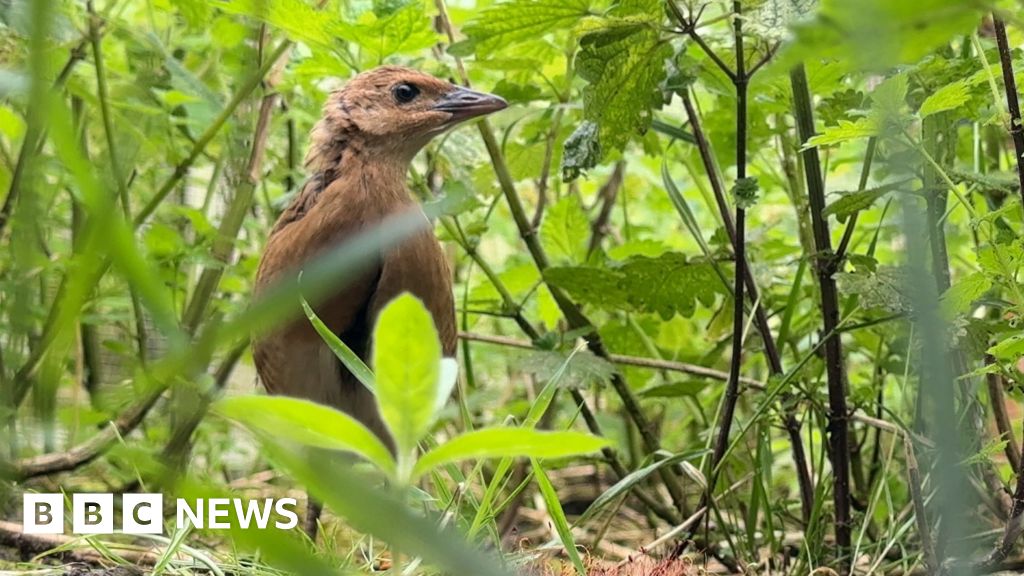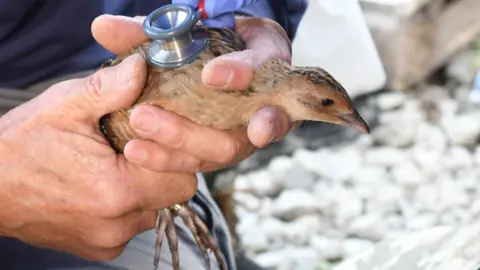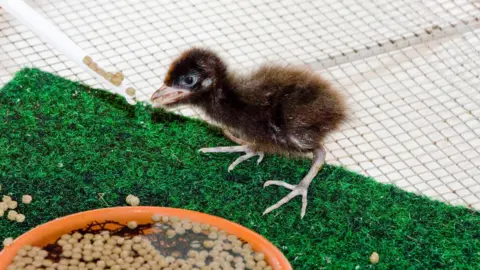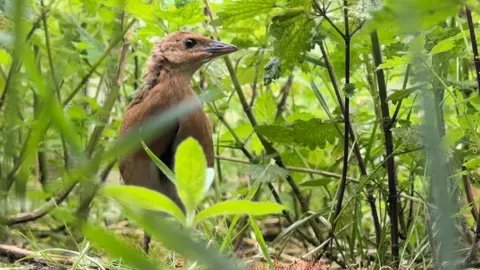Norfolk reintroduction raises hope for endangered corncrake

The “crex crex” call of the corncrake was once a familiar sound in the British countryside.
But habitat loss caused by modern farming methods pushed the bird to the brink of extinction.
Now there are hopes the corncrake can stage a comeback in England, after being reintroduced to the fenlands of Norfolk.
One conservationist said it was a “dream come true” to hear at least nine calling males this year, up from only three in 2021.
Globally the bird’s population is threatened in parts of its range across Europe and Asia. But in the UK it is on the so-called red-list as a species of most concern.
Aside from this one tiny population in England that scientists are trying to secure, the only other corncrakes in Britain are found on the Scottish isles.
 WWT
WWTSince 2021, 100 corncrakes have been bred in captivity and released each year in a bid to re-establish them in the wild on the flood plains of the River Ouse – home to thousands of wild birds.
The call of the corncrake is a “lovely noise to hear out in the washes,” says Emilie Fox-Teece of the Wildfowl and Wetlands Trust reserve at Welney, Norfolk.
“The fact that we’re able to help boost and support the population in this way to try and establish a sustainable population is very important,” she says.
The birds that are released each year have big challenges ahead. They spend the summer feeding then migrate to Africa in the autumn, with only a small number making it back home the following spring to breed.
Returning males are located by their calls and counted, with numbers slowly growing from three males in 2021 to at least nine in 2024, suggesting a population of at least double that, once the quieter females are factored in.
 Getty Images
Getty ImagesChrissie Kelly, the head of species management at the Pensthorpe Conservation Trust, a partner in the project, says this is the only known corncrake population in England.
“There is cautious optimism that we can build on those numbers,” she says. “It’s a sound we should be hearing in our countryside again.”
It is hoped the population will soon be big enough to survive naturally without the need to release birds bred in captivity.
 WWT
WWTThe corncrake was once widespread across Britain, arriving from Africa each spring.
It was often heard at night, keeping people awake with its piercing call, much like the sound of wood being drawn across the teeth of a comb.
However, modern farming methods, such as cutting meadows early and through mechanical means, led to the corncrake’s decline.
The Scottish population, restricted to the western and northern islands, was last year estimated to have included about 900 calling males.
Related
Youth football teams hold minute’s silence for 10-year-old Poppy Atkinson
Youth football teams and grassroots clubs across the country have held a minute’s silence at the start of their games to commemorate a 10-year-old girl who di
Girl’s death sparks minute’s silence at football matches nationwide
10-year-old Poppy Atkinson was killed when she was struck by a car during a training session at Kendal Rugby Club in Cumbria. Clubs from Leeds to London
Liverpool fans’ Uefa claim can be heard in England, judge…
The high court, sitting in Liverpool, heard Uefa had relied upon the principle that English courts will not inquire into the legality of actions by foreign gove
Alan Shearer’s Premier League predictions including Manchester United vs Arsenal
Caption: Alan Shearer?s Premier League predictions credit: Getty / Metro After some impressive results for English sides in Europe the focus is













